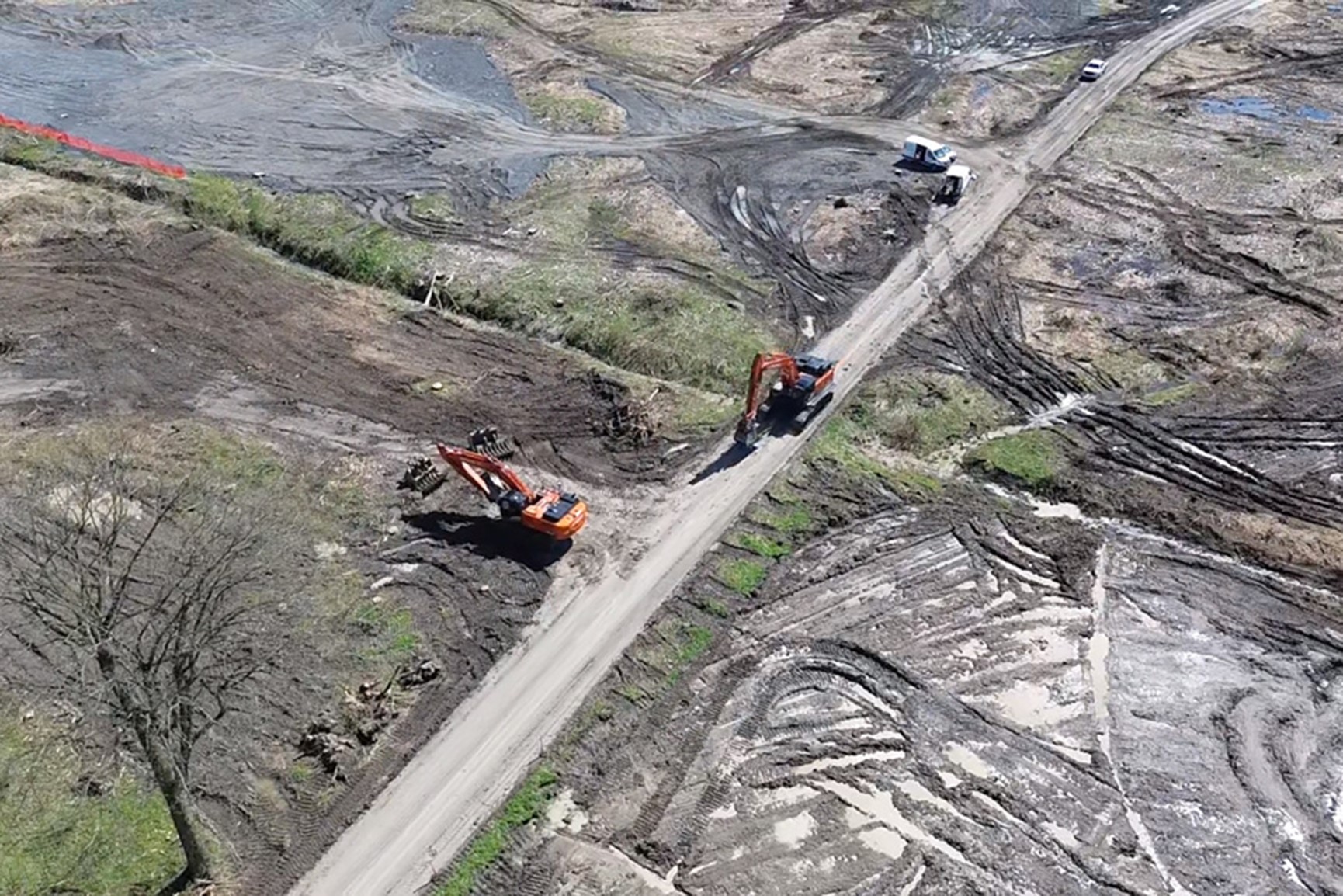According to La Presse, Northvolt is slowing down the progress of its Canadian battery factory. The company's large-scale battery factory on the south shore of Montreal was originally scheduled to start production in 2026, but it has recently been confirmed that there may be a delay of up to 18 months, pushing the start of production to 2028.
An anonymous source revealed that the Swedish battery startup will finalize the production schedule for the Canadian battery factory after an ongoing strategy review, with results expected in the fall of this year. In a brief statement to the media, Northvolt indicated that it is currently reassessing the timeline for the Canadian battery factory, but site preparation work continues, and "engineering and design of the technology complex are ongoing."
Photo from La Presse
On September 28, 2023, Northvolt announced a CAD 7 billion investment to build its sixth battery factory in Canada, with a planned 170-hectare site. Construction was set to begin by the end of 2023, with the first phase targeting an annual production capacity of 30 GWh, aiming to start production in 2026; the second phase targets to expand to an annual 60 GWh. In addition to battery production, a facility for the production of active cathode material and a recycling plant are also planned near Montreal. To secure Northvolt's factory in Canada, the Quebec and Ottawa governments agreed to provide the company with government subsidies similar to the IRA, offering up to $4.6 billion in funding support after battery production begins.
However, longer-than-expected site preparation and leveling, as well as cumbersome environmental approval procedures, have delayed the progress of the battery project. Moreover, the slowdown in the electric vehicle market is also a major reason for Northvolt to adjust the production schedule of the battery factory. In recent months, the slowdown in the global electric vehicle market has led major electric vehicle manufacturers and battery manufacturers in Europe and the United States, such as General Motors and Ford, to re-examine their development strategies in this field and delay production schedules. In July of this year, co-founder and CEO Peter Carlsson admitted in an interview with Swedish media that the attery production expansion plan was a bit too aggressive and is now reviewing the expansion strategy.
Investment in the United States in the field of batteries and battery materials is also contracting. According to a recent commentary by the Financial Times, the media tracked 114 large-scale investment projects announced by the U.S. Inflation Reduction Act (IRA) with a total investment of $227.9 billion, of which nearly 40% of the projects are behind schedule or shelved, and some may be delayed for several years.
Production at other Northvolt factories is also not satisfactory. The company's first large-scale battery factory in Skellefteå, northern Sweden, began production at the end of 2022, but even after a year and a half of ramp-up, the scrap rate remains high, with high battery costs and lower-than-planned output. Due to delayed delivery, BMW recently had to cancel a $2 billion order with Northvolt. BMW originally needed to purchase prismatic batteries from the Skellefteå factory for its current iX, i4, or i5 series, but Northvolt could not deliver the agreed quantity.
Northvolt's Gothenburg battery factory, in collaboration with Volvo, is under construction, and its battery factory in Heide, Schleswig-Holstein, Germany, broke ground in March of this year.
Recently, in line with the United States, Canada announced a 100% tariff on Chinese-made electric vehicles, which was retaliated against by the Chinese government. This will inevitably further increase the manufacturing costs in North America and reduce market competitiveness. The upcoming U.S. presidential election also has some uncertainty. If Trump takes office, he may oppose the transition to electric vehicles and withdraw electric vehicle subsidy policies, which will further slow down the development of the entire electric vehicle industry in North America.






